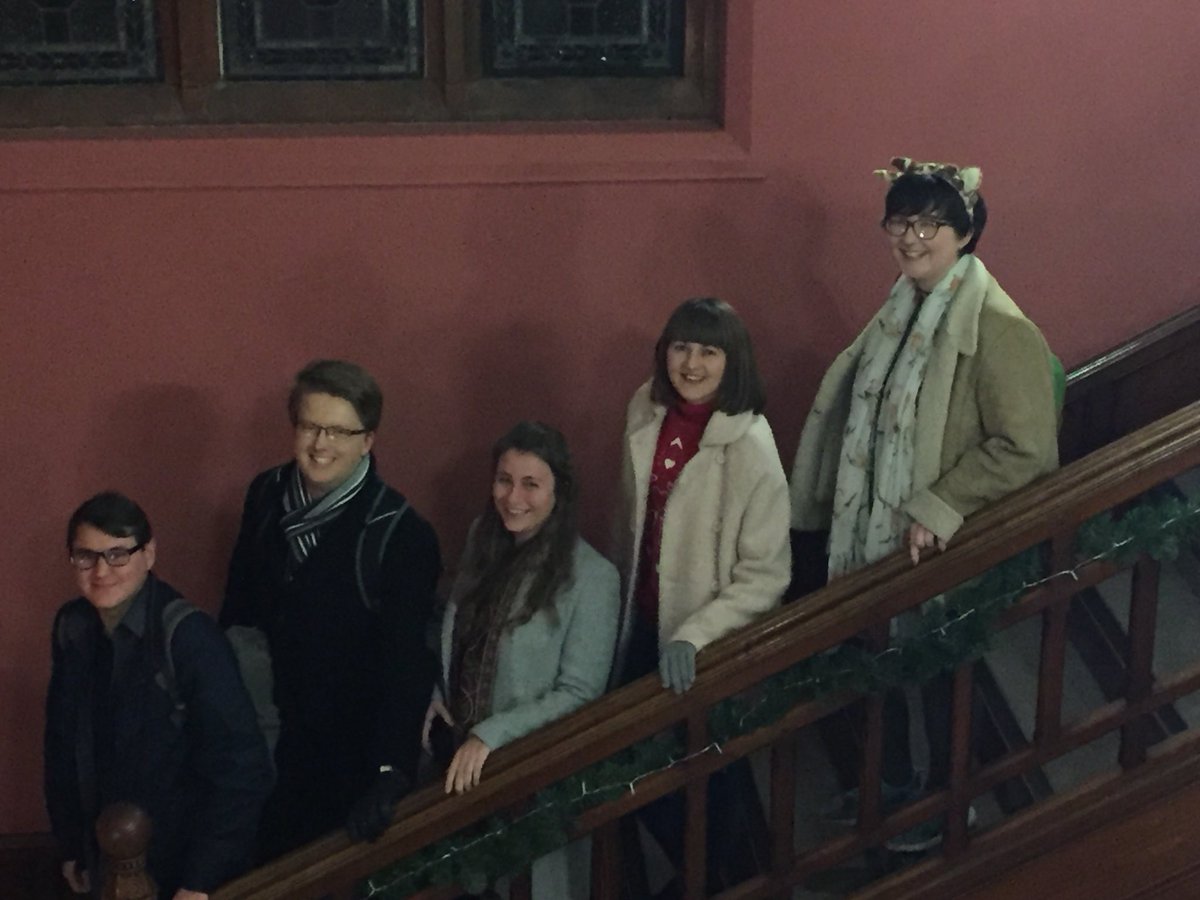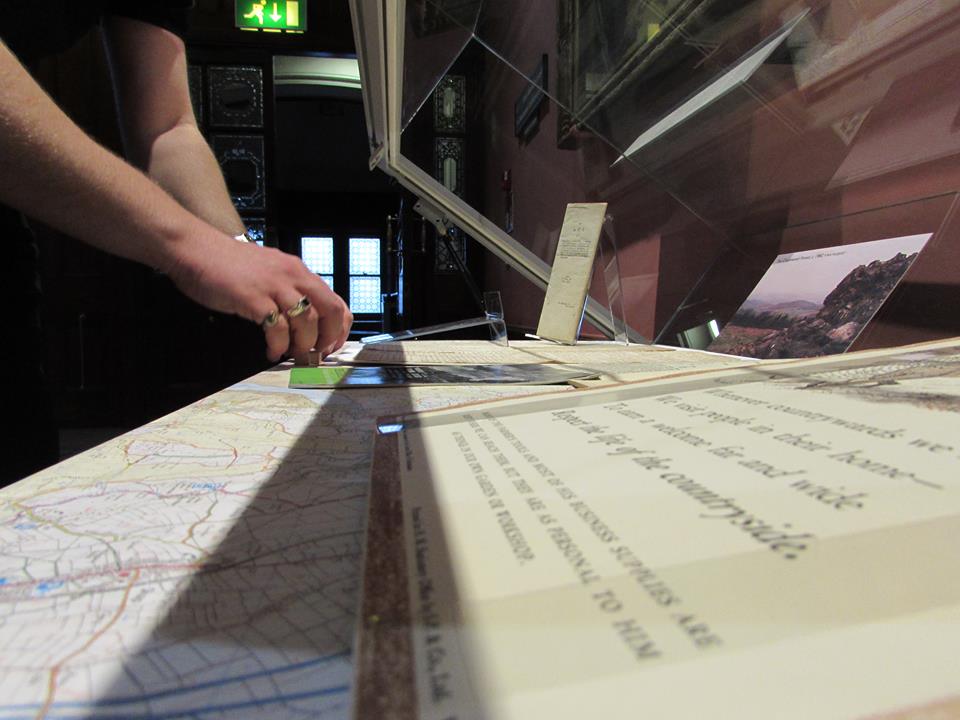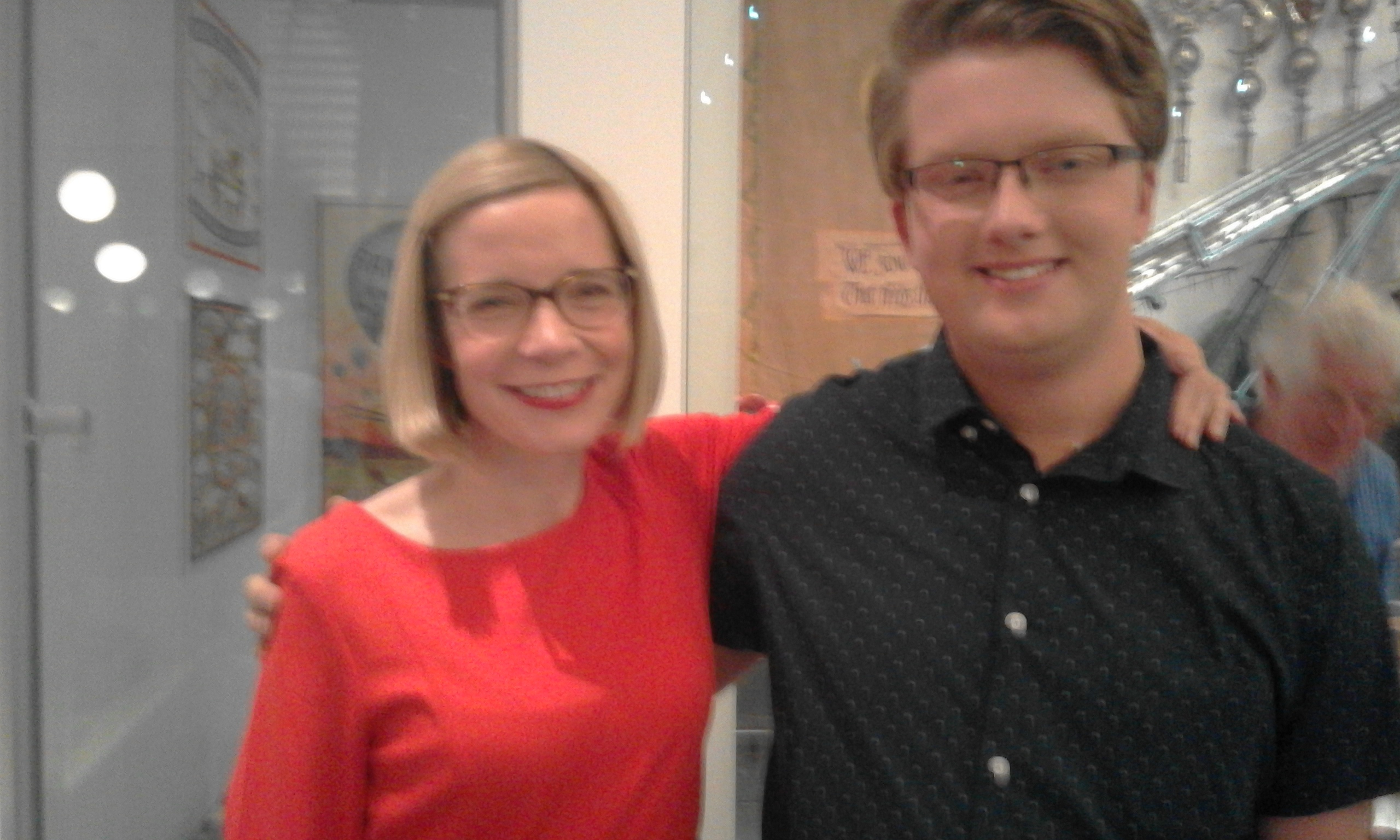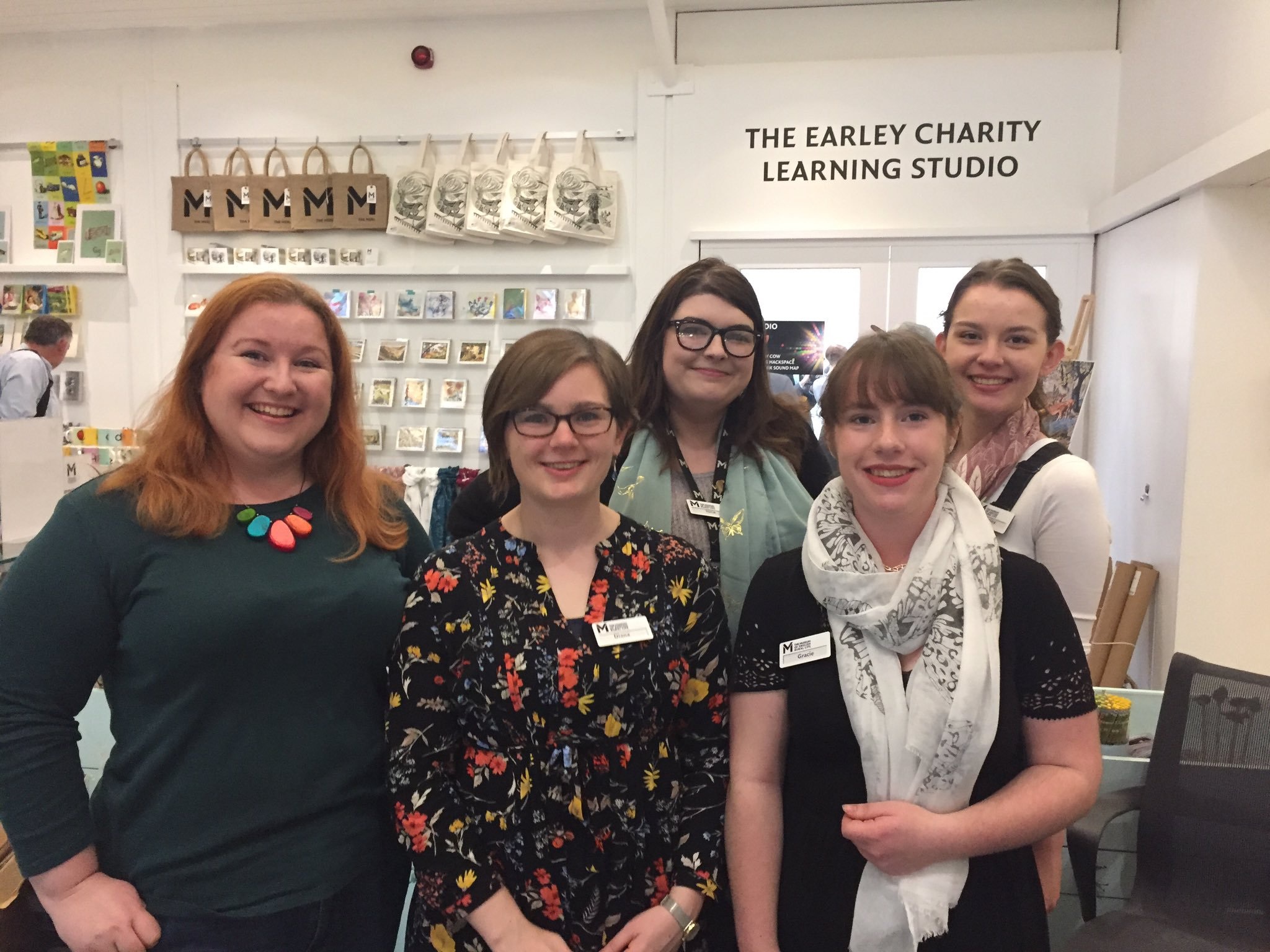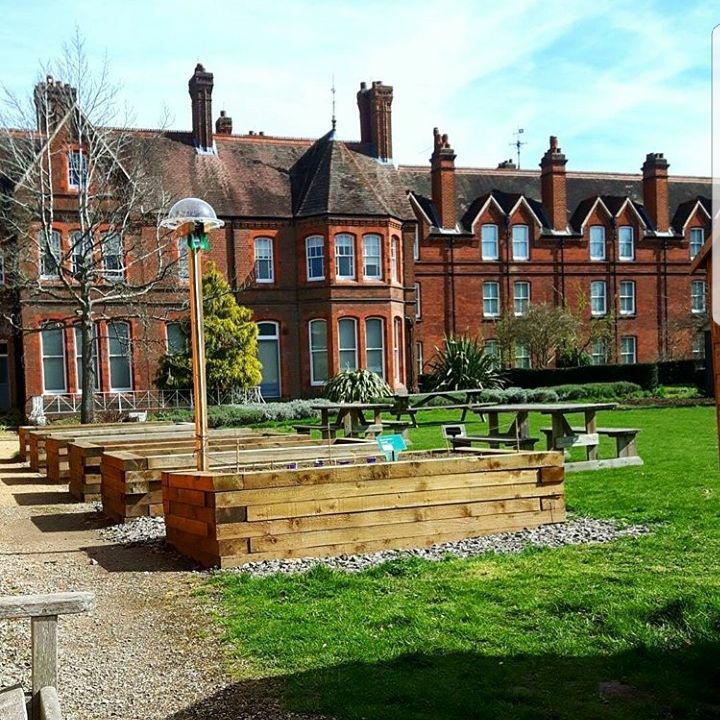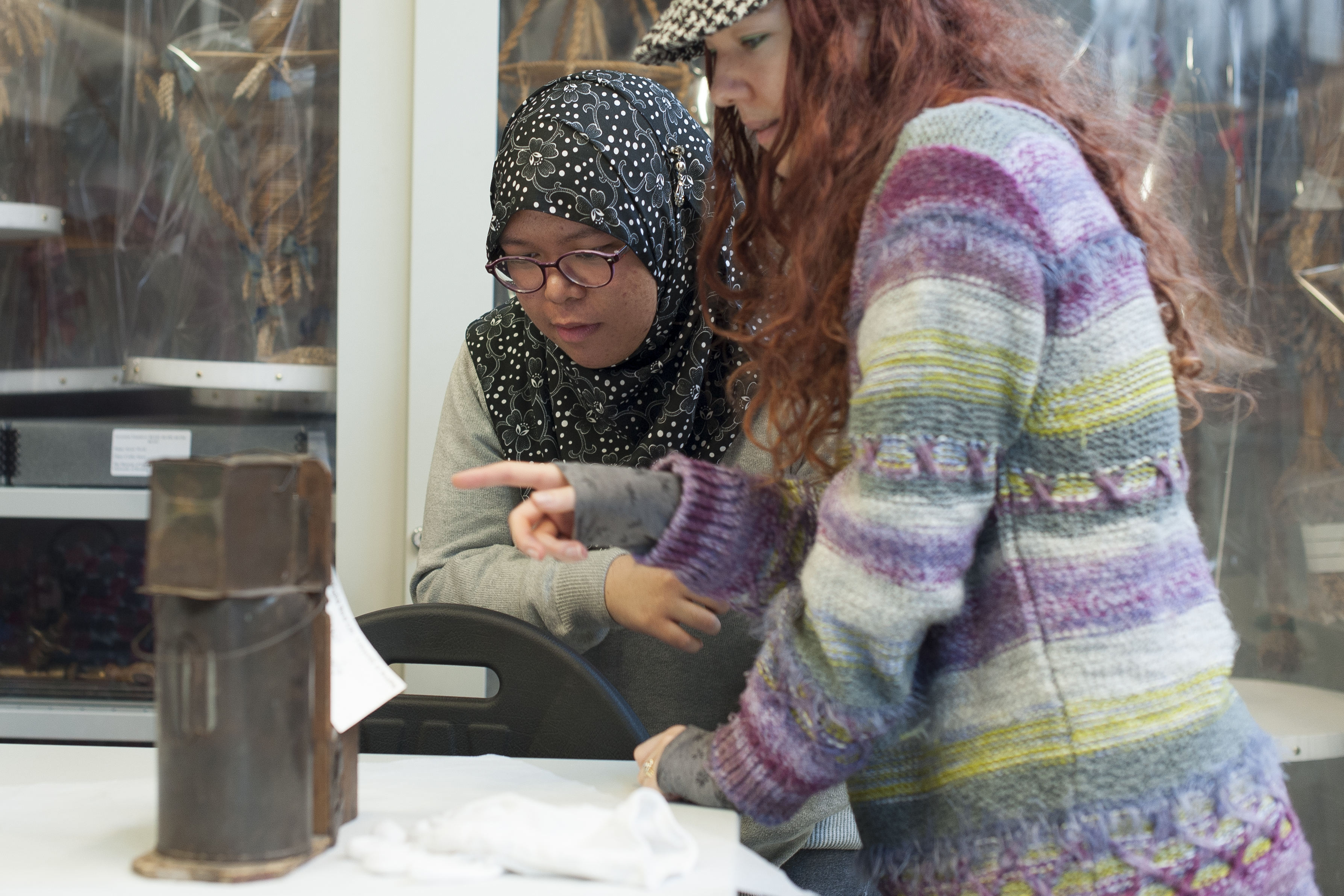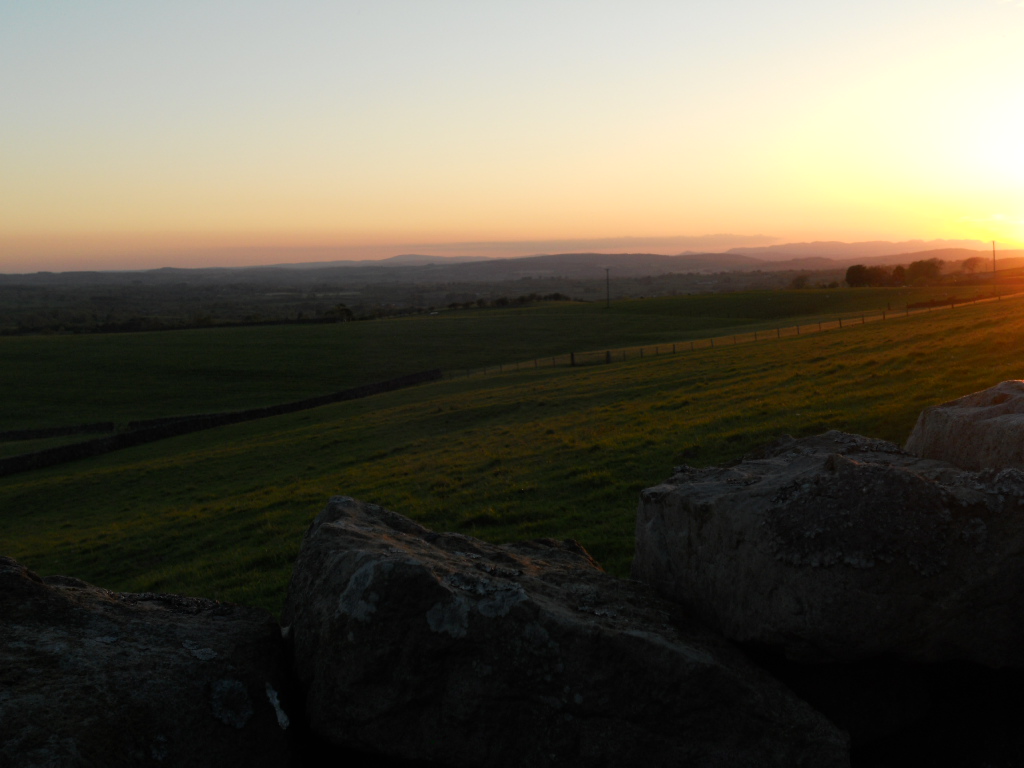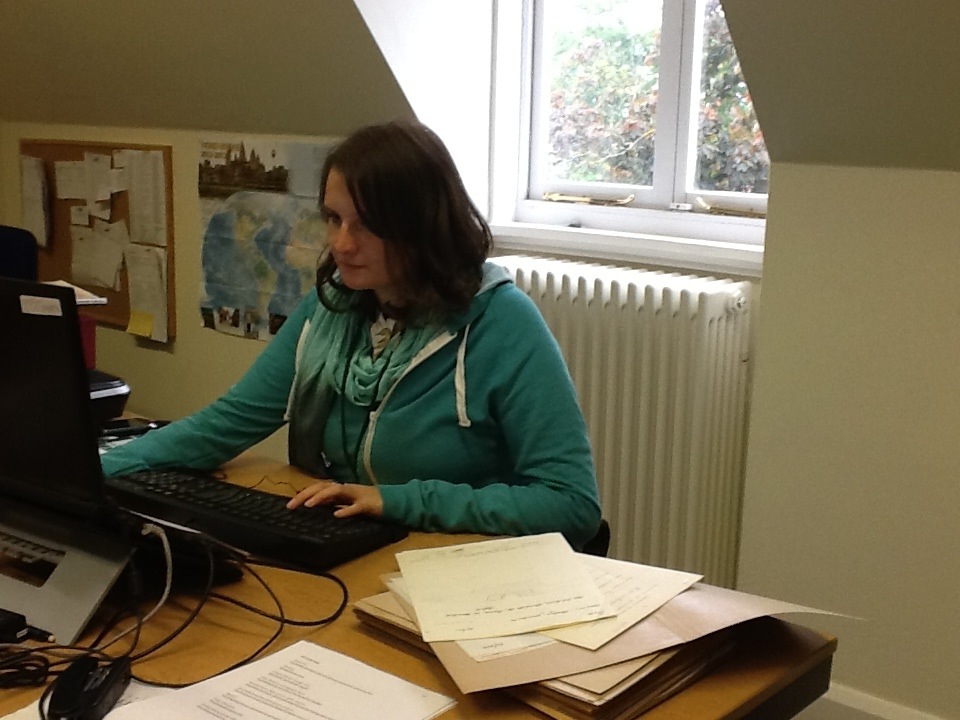by Matthew Abel, Museum Studies Student at the University of Reading
Dissertations are done, exams are over, and, like the Von Trapp children (who we appear to be channelling in this photo), it is nearly time for me and my fellow Museum Studies finalists to say goodbye to the University of Reading. The last three years have definitely changed my life for the better, and in this post I thought I’d share a few thoughts for anyone thinking of applying for a Museum Studies course at Reading.
Yes, Museum Studies is a thing…
When I was looking for a course, I knew that Museum Studies existed as a subject and that I wanted to study it. But pretty much everyone outside the museum world doesn’t seem to know this, so be prepared for a lot of “You study museums?”, “What’s that all about?” and my personal favourite “Oh, that’s… different”.
… but it can mean different things
There are not many undergraduate Museum Studies courses out there (it’s usually a postgraduate subject), but their content can vary significantly. For example, Reading’s courses are combined with either Archaeology or Classics modules, while others have more of an Art History focus. So read the syllabuses thoroughly and think about your own interests. Having worked in museums for a few years before uni, I wanted a course that was practical, relevant and comprehensive (and wasn’t just Art History in disguise), so when I read the Museum Studies and Archaeology syllabus, I knew it was the one for me.
And it is very practical
If you are thinking of taking Museum Studies, it’s pretty likely that you want to work in museums, so the course is very much focused on trying to make that happen. There are lots of practical elements, ranging from object handling seminars, skills-based assignments and museum visits, to an assessed work placement in Part 2 and a group exhibition module in Part 3. If you take the Archaeology option, you also have the chance to attend the Field School over summer. I’m definitely an indoor person so the Field School wasn’t for me, but I’m very grateful I was offered the chance to go on a real archaeological dig! Field experience is essential if you want to be an archaeologist, yet many universities no longer run their own field schools, so Reading has a real edge here.
Image: Installing a display for the group exhibition module in Part 3.
Grab every experience
Because Museum Studies is such a vocational course, you will definitely get more out of it if you can do some museum work or volunteering while you study. This allows you to put what you learn in lectures into practice and network with other people in the sector. As well as the placements mentioned earlier, there are also lots of opportunities to get work experience outside the course. In Part 2, I got a summer job through the Reading Internship Scheme (RIS), which offers paid internships with local companies in various sectors, and is only available to University of Reading students. I spent eight weeks with the Curatorial department at the River & Rowing Museum in Henley on Thames, which was a wonderful experience. I helped install a temporary exhibition, learnt some new collections management skills, and even got taken on a “works outing” to Henley Royal Regatta!
Image: Installing a temporary exhibition at the River & Rowing Museum with Assistant Curators Caroline Brown and Chelsea Eves.
The staff are great
I probably should have mentioned them earlier, but the course lecturers, Rhi Smith and Nicola Pickering, are brilliant too! Rhi’s background is in archaeology and anthropology, and Nicola is an art and architectural historian, so their combined expertise provides a really broad insight into the museum world. Some of the staff at The Museum of English Rural Life (MERL), where the course is based, also deliver some of the content, such as object handling sessions and guest lectures. This is a real bonus as you are learning from people who actually do the kind of jobs you are hoping to do. And who better to learn from than the people who brought you such social media sensations as this surprisingly effective mousetrap and this magnificent woolly hero?
Reading is nicer than you probably think it is
Finally, if you like the sound of everything else but think Reading isn’t a very interesting place to live, think again! I was really surprised by how much cultural activity there is in Reading, and initiatives like Place of Culture and the Abbey Quarter are all about promoting this and trying to engage people with it. One of my highlights was seeing the cell where Oscar Wilde was imprisoned during the Inside project at Reading Prison. I also got to meet historian Dr Lucy Worsley when her father Peter did a book launch at The MERL (fun fact: Peter Worsley used to be a professor at Reading and Lucy herself was born here). The British Museum is even planning to open a new research centre in Reading in partnership with the University, so there is a lot to look forward to.
Image: Meeting Lucy Worsley at The MERL.
If you are considering a Museum Studies course at Reading, I hope this post has shown what a great opportunity it can be. As someone who dropped out of another uni at 18 and vowed never to go back, I never even expected to finish a degree course, let alone enjoy it so much. But this just proves that if you find the right course at the right uni, and do it at the right time for you, anything is possible. Auf Wiedersehen!


